Prof. Dr. Thorsten Berger
Software Engineering
Professor / Lehrstuhlleitung
Adresse:
Ruhr-Universität Bochum
Fakultät für Informatik
Software Engineering
Universitätsstraße 150
--D-44801 Bochum
Raum: MC 1.95
Telefon: +49 (0)234 32-25975
Sprechzeiten: Nach Absprache
E-Mail: thorsten.berger@rub.de

